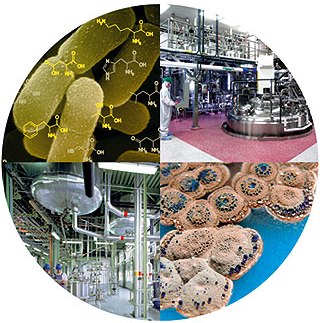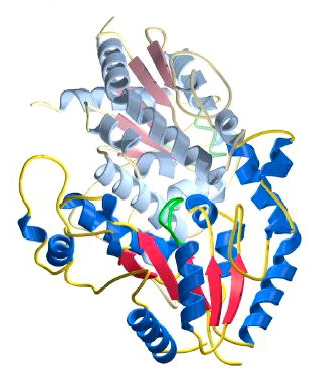Biotechnology
What is Biotechnology?
Biotechnology is the practice of using plants, animals and micro-organisms such as bacteria, as well as biological processes - such as the ripening of fruit or the bacteria that break down compost - to some benefit. For example, biotechnology is used in in industry, medicine and agriculture to produce foods, medicines, test for diseases and remove waste. It can also be used to solve problems and conduct research. Over time, biotechnology has formed the basis of learning about people and diseases. Biotechnology has also underpinned the development of treatments.
The word biotechnology is a cross between the Greek words 'bios' (everything to do with life) and 'technikos' (involving human knowledge and skills). The OECD (the Organisation of Economic Co-operation and Development) defines biotechnology as "the application of scientific and engineering principles to the processing of materials by biological agents". More simply, it is using living organisms to make useful products.
The word 'biotechnology' was coined by Karl Ereky, a Hungarian engineer in 1919. He used biotechnology as an umbrella term to describe methods and techniques that allow the production of substances from raw materials with the aid of living organisms.
- Old Fashion Biotechnology
The biological systems that have traditionally been used are organisms such as yeasts, fungi or bacteria. Examples of biotechnological processes "avant la lettre" include beer brewing or wine and cheese making. Our ancestors sought new ways to produce more food or new foods. It was an extremely slow process : plant breeders for example crossed plants to produce varieties with particular traits or characteristics (such as a particular petal colour or better resistance against a virus). But as each plants has tens of thousands of genes, this was very much a matter of trial and error. The ancient Egyptians developed fermentation, bread-making, brewing and cheese making. Yeasts are living organisms meaning that bread- and cheese making are biological processes.
Crossing animals, was just as difficult, which, however, did not discourage the breeders : a cow today gives many times more milk than its 19th century ancestor.
- Modern Biotechnology

In recent decades biotechnology has gained considerable momentum and has developed at a fast rate in response to increasing knowledge of biological mechanisms. Some new technological developments such as the large-scale production of human proteins as medicines via biotechnology yield better forms of treatment for diseases such as multiple sclerosis and some types of cancer, and for the first time in history have made it possible to treat patients with rare genetic diseases. Other applications have found their place in the agricultural sector. Sectors such as bioinformatics have had a tremendous impact and continually drive research and development in a wide array of sectors.
- Biotechnology and Environment
Biotechnology increasingly helps to protect the environment. Biotechnology makes many pollutants (such as chemicals redudant) and aids in the accelaration of environmental contaminants. Biotechnology has been particulary important in innovative bioremediation techniques used to clean up anything from crude oil to agricultural pesticides and gasoline contamination.
Making agricultural and food production more stustainable, biotechnology manages to decrease the environmental impact necessary production techniques may have.
- The Future of Biotechnology
The commercial success of bioproducts and processes depends on scientific, technological and environmental innovation and on a supportive regulatory framework. Nevertheless, Europe is currently well placed to develop good products for the market, building on its established strengths:
- Europe has a solid chemical, pulp and paper, woodworking and biotechnology industry infrastructure;
- Europe is the world leader in key industrial biotechnologies such as enzyme technologies, and both small- and large-scale fermentation. The key enzyme-business players are heavily concentrated in Europe;
- Europe is very strong in the development and production of biobased specialities (such as food ingredients, pharmaceuticals, and fine chemicals);
- Renewable raw materials are available in Europe, but competition is increasing;
- Europe has an education system that performs to a high standard and provides an extremely highly skilled workforce.
New developments for second and third generation biotechnoloy applications have been increasing and will shape the future markets for decades to come.

